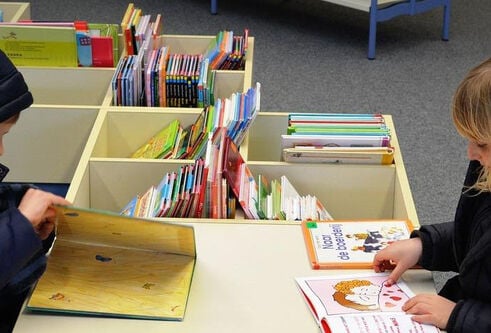Professor Keith Topping
Chair of Research
Education and Society, School of Humanities, Social Sciences and Law

Contact
Biography
Keith Topping is Professor of Educational and Social Research.
His main research focus is Peer Learning (including peer tutoring, cooperative learning, peer assessment, and so on) and other forms of non-professional tutoring (e.g. by parents, assistants or volunteers) - in core skills (e.g. reading, spelling, writing, thinking skills, science, mathematics, information technology) and across subject boundaries, in all sectors and contexts of education and lifelong learning. These methods are targeted to: raise achievement; enhance motivation, self-esteem and confidence; develop social, communication and other transferable skills; and promote inclusion.
Keith is director of the Centre for Peer Learning. He directed the Higher Education Effective Learning Project (peer assisted learning between students in college and university). He was co-director of the national Read On project (cross age peer tutoring in reading and thinking, coupled with parental involvement at home) and of the national Problem-Solving project (cross age peer tutoring in mathematical problem-solving, coupled with parental involvement at home). He was engaged in the Group Work Scotland ESRC TLRP project in cooperative learning in science and subsequently a TLRP progression project investigating collaborative learning in primary-secondary transition funded jointly by ESRC and the Scottish Executive (Groupwork Transition). This was followed by the national Scotland Reads project involving volunteer tutors aged 16-25. A large scale design experiment investigating value added by different types and intensities of peer tutoring in reading and mathematics was funded by ESRC and Fife Council in collaboration with the University of Durham. The effectiveness of peer tutoring (as tutor or tutee) as a major component in a randomized controlled trial of after-school programmes for juveniles at risk in the criminal justice system in Washington DC was then funded by the US Department of Education.
Keith was a member of the International Reading Association task force charged with translating the PISA and PIRLS research studies of achievement in 37 countries worldwide into culturally relevant policy and practice guidelines. He was convenor of the Parents in Education Research Network. He has worked several European projects, for example: a five-country project on online learning for parent trainers and parents in maths and science and helping the Maltese government develop parent trainers. He also has interests in problematic behaviour in schools, leading the Scottish Executive project on Promoting Social Competence in schools and co-directing the international Intervening with Disturbed Adolescents project. He also has interests in electronic literacy and computer aided assessment.
Recently he has worked with Scottish Government on the development of the Primary One Literacy Assessment and Action Resource (POLAAR) literacy assessment system for pre-school children. He has also been involved in projects exploring parent involvement in language development with children aged 0-3 years, using 24-hour recordings and computer analysis of these. He has also been working on studies of quality of implementation of book reading and outcomes in primary and secondary schools. He has also been involved in a series of books about peer learning (see below).
Topping, K., Duran, D., & Van Keer, H. (2016). Using peer tutoring to improve reading skills: A practical guide for teachers. London & New York: Routledge. ISBN: 978-1-138-84329-5 (pbk). Resources website: www.routledge.com/9781138843295.
Topping, K., Buchs, C., Duran, D., & Van Keer, H. (2017). Effective peer learning: From principles to practical implementation. London & New York: Routledge. ISBN: 978-1-138-90649-5 (pbk). www.routledge.com/9781138906495
Duran, D., & Topping, K. J. (2017). Learning by teaching: Evidence-based strategies to enhance learning in the classroom. London & New York: Routledge. ISBN: 978-1-138-12299-4 (pbk). Also in Spanish. www.routledge.com/9781138122987
Topping, K. J. (2018). Learning by Peer Assessment: Appraising, reflecting, discussing. New York and London: Routledge
Keith's published works are approaching 400 (books, chapters, peer reviewed journal papers, and distance learning packages), with translations into Spanish, Italian, German, Portuguese, Chinese, Danish, Arabic, Turkish, Russian, Catalan and Hebrew. Prior to entering Higher Education in 1992 he worked for a number of local Education authorities, and for Social Services and Health.
Degrees & Qualifications
- B.A. Social Psychology (Sussex)
- M.A. Child Development (Nottingham)
- Ph.D. Educational Psychology (Sheffield)
- Fellow of the British Psychological Society (F.B.Ps.S.)
Research Interests
- Peer Learning
- Parents as Educators
- Computer Assisted Learning & Assessment
- Social, Emotional & Behavioural Competence & Dysfunction
Research Groups
Specialist in research in Educational Psychology. Director of the Centre for Peer Learning. Within the university, collaborations with applied computing, mathematics, economics, law, psychology, nursing & midwifery, medicine, and others. National (U.K.) collaborations with a number of universities, e.g. Cambridge, University of London Institute of Education, Exeter, York, Stirling, Strathclyde. International collaborations (yielding output) with many universities: Illinois - Chicago, Rutgers, Cincinnati, Minnesota, CUNY/Queens College, George Mason, Georgia Southern, Iowa, Tennessee - Knoxville, Mississippi State, Arizona State - Tempe, Maryland (US); Maranhao and Goias (Brasil); Hong Kong; Leiden and Maastricht (Netherlands); Humboldt (Berlin, Germany); St. Gallen (Switzerland); Ghent, Leuven and Vrije (Belgium); University of Cyprus and Europa (Cyprus); Barcelona Autonomous & University Of Cadiz (Spain), Charles University (Czech Republic).
Research Funding
- National Literacy Trust - Face-to-Face: Parental contribution to child language development ages 0-3 (2009 - £12,000)
- European Social Fund - Parental involvement in children's education to improve transferable skills and employability (2009-10 - €90,000) (collaboration with government of Malta)
- ESRC - Peer tutor status and outcomes in primary mathematics (2009-10 - £80,059.47) (collaboration with University of Stirling)
- Europa Grundtvig - Helping parents to help their children excel in mathematics and sciences (2007-9 - €298,338) (collaboration with Cyprus College, University Of Cyprus, University Of Cadiz, Charles University Czech Republic)
- Economic & Social Research Council (ESRC) and Fife Council (2006-8) (£370,700)
- NHS Education for Scotland (NES) (2006-2008) (£189,897) (collaboration with Nursing at Dundee, Salford, Sheffield universities and Fife & Tayside Health Boards)
- US Dept of Education (Institute for Educational Sciences) (2005-2008) ($US1,499,943) (collaboration with University of Maryland)
- Scottish Executive & Learning & Teaching Scotland (2005-6) (£23,822)
- Economic & Social Research Council (ESRC) and Scottish Executive Education Department (2005-6) (£88,377) (collaboration with Educational Studies & Psychology, University of Strathclyde)
- Strategic Infrastructure Fund (2005-6) (£29,000)
- Scottish Enterprise and Careers Scotland (2003-4) (£10,000)
- Economic & Social Research Council (ESRC) Teaching & Learning Research Programme (TLRP) (2003-4) (£72,000) (collaboration with Educational Studies & Psychology, University of Strathclyde)
- European Commission Information Society Technologies Programme (2003-6) (£397,229) (collaboration with Applied Computing at Dundee and partner countries: Canada, Slovakia, Germany)
- The Scottish Office Education and Industry Department (1996-8 and 1998-9) (£130,000)
- British Petroleum, Scottish Executive Education Department, and partner local education authorities (1998-1999 £87,300; 2001-2002 £89,500)
- Scottish Higher Education Funding Council (1993-6) (£150,000)
- Universities' China Committee in London (2003)
- The Nuffield Foundation (1995-6)
- The Scientific Affairs Board of the British Psychological Society (1995)
- The British Academy (1995, 2003)
- Scottish Enterprise (1995)
- British Telecom (1994-5)
- The Lord Mayor of London's Appeal (1994-5)
- Community Service Volunteers (1994-5)
- The Hamlyn Foundation (1993)
- British Petroleum (1992, 2004)
Media availability
I am available for media commentary on my research.
Professor Topping’s research centres on peer learning (especially peer tutoring and peer assessment), parents as educators, problematic behaviour and social competence, computer assisted learning and assessment, and inclusion. Professor Topping has extensive media experience, and researches and speaks all over the world. He has about 450 publications in 19 languages.
Contact Corporate Communications for media enquiries.
Areas of expertise
- Education
Research projects
Project lead
Research project
Serious social, emotional and behavioural disturbance in adolescents is costly - incurring long-term costs to society in service provision and collateral damage as well as personal costs to the young people themselves
Project team
Research project
This project explores transfer to the secondary school environment of pupil domain-specific knowledge and skills (particularly in science), and general social, communication and teamwork skills
Stories
Press release
Five years on from the disruption of lockdown, young readers are engaging with more challenging books—and understanding them better – according to a new study authored by a University of Dundee education expert.

Press release
An annual study detailing the reading habits of the nation's children has shown shows a 4.4% year-on-year decrease in the number of books being read by children from Year 1 to Year 11.

Press release
Insights from the 2023 ‘What Kids Are Reading Report’, a nationwide study including more than 40,000 Scottish pupils, reveals that children read 24% more books than in the previous year.